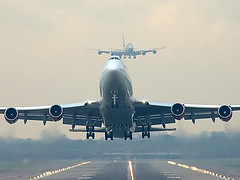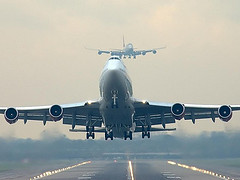 Enrique Medina
Enrique Medina
The ongoing debate on the net neutrality regulation is quite passionate and thrilling. In the USA, where President Obama has turned the topic in one of the pillars for the last part of his mandate, FCC Chairman has already published a regulation proposal similar to that desired by Mr. Obama. An analogous debate, with less intensity, is also taking place in Brussels these days.
Nevertheless, other players, among them Telefónica, understand the idea of Neutrality in a broader sense. The digital experience of users is composed by many services and technical solutions concurrently provided by a wide array of players. No one can ignore the complexity of today’s digital ecosystem. To be fair with our users and to be right responding their demands, we’d rather refer to the term Digital Neutrality. It implies a much more holistic approach including both carrier neutrality and content /application neutrality, because the Internet is not just the access network.
Having said that, I will go through the debate proposed by the Net Neutrality supporters in depth. They affirm that this market intervention would prevent telecommunications operators from controlling the fate of the Information Society, and from picking winners and losers in a democratic society. Nevertheless, for telecommunications operators, the topic revolves around the need to avoid an ex ante regulation for an issue which could equally be solved by means on Antitrust law. It is also about preventing limitations to the freedom in the way the network is managed, regulatory obstacles which discourage investment in Next Generation Networks and in innovative products and services for their clients
The issue is complex, and the positions are opposed and even irrational in lots of instances. Even for the experts is difficult to provide insights on how Net Neutrality provisions and the Internet ecosystem will interact, more over when implications seem to be more profound on the innovative scenario and on services yet to be born.
A good approach to this sometimes philosophical debate is to find examples of similar but more established markets where assessing these interactions could be more fact based and less hypothetical. Yet comparisons are never perfect and arguments calling into question the suitability of the examples may be found, examples are good for illustrative purposes. Restrictions resulting from the implementing broad non-discrimination principles across different industries will differ, but they can provide a fact based and unbiased approach on how these principles –Net Neutrality when enforced on ISPs– could play in the Internet and impact our lives. This is the sort of exercise Telefonica has realized together with the prestigious consultancy Solchaga Recio & associates: what would the impact of applying broad non-discrimination Net Neutrality similar principles be in other industries?
Starting today, and during the coming months, Solchaga Recio & associates will share their findings on how these provisions could change our lives if applied in other industries providing services that touch every consumer and are used daily by everyone.
This first case study focuses on the airlines industry, well known to most Internet users as the Internet has eased access to the purchase of flight tickets and to the haunting of discounted rates. Airlines provide a great example given the fact that they implement many price differentiation techniques with two simultaneous and somehow confronted objectives. That is, maximize revenue streams and flights occupation; such pricing schemes do have many benefits for airline customers, some as evident as access to lower flight rates.
Applying Net Neutrality principles to airlines would put an end to price differentiation, meaning all flight seats would have the same price. Thus, there would be no more early bird discounts, last minute bargains, frequent flyer programs, discounted flight & car rental or flight & hotel bundles or choosing seat –a more spacious one- in advance.
The effects of having a “unique seat price”, on top of increasing ticket prices, would be many: customers suffering more complex luggage logistics in flights with connections, reduction of flight frequencies, elimination of flight routes, closing down of online travel agencies. The findings of this exercise do not seem very attractive.
Acces this first case study study to find out more what could mean applying Net Neutrality rules on a competitive market for consumers’ welfare and market participants.
What seems an absurd idea for the airlines industry market is taken for granted to be the best solution for assuring Internet remains as Open as it was the goal when it was created. Regulating a competitive market to prevent potential misbehaviors seems disproportionate and may lead to unintended consequences, reducing consumers’ welfare by means of higher prices and reduced customer choice –lower number of sellers and a smaller product portfolio–. This might be a read-across of the first example by Solchaga Recio & associates.










